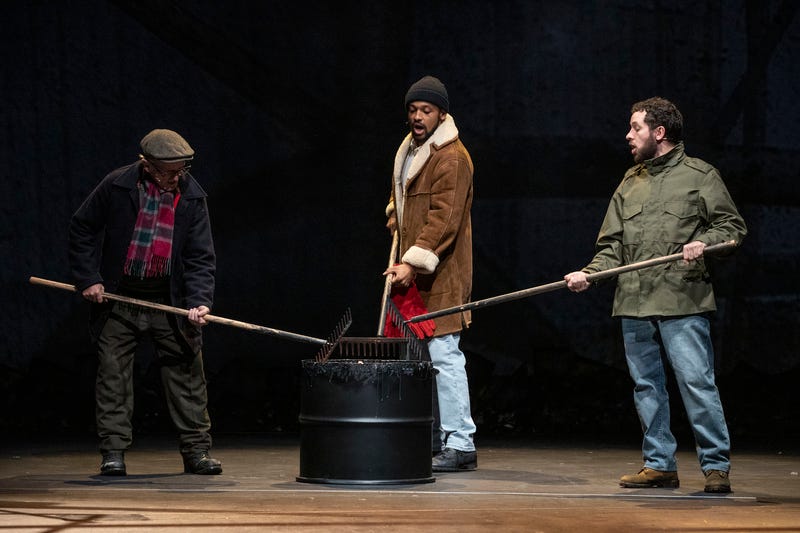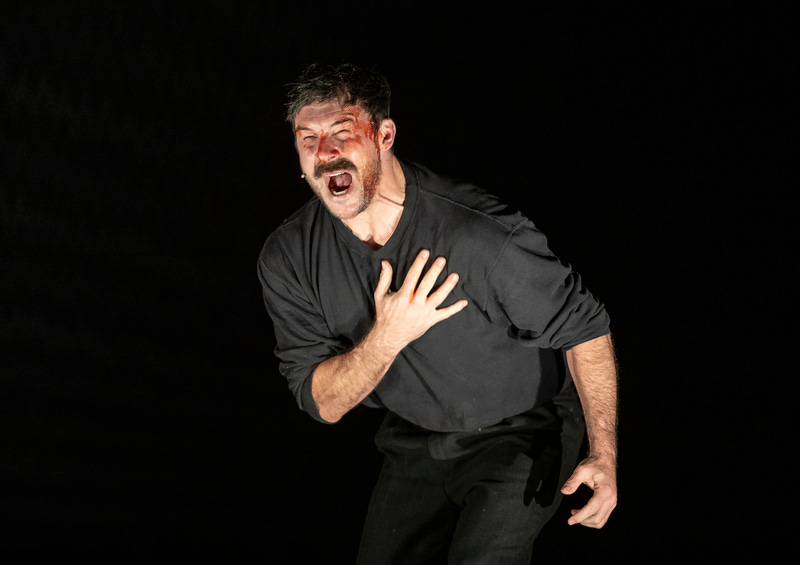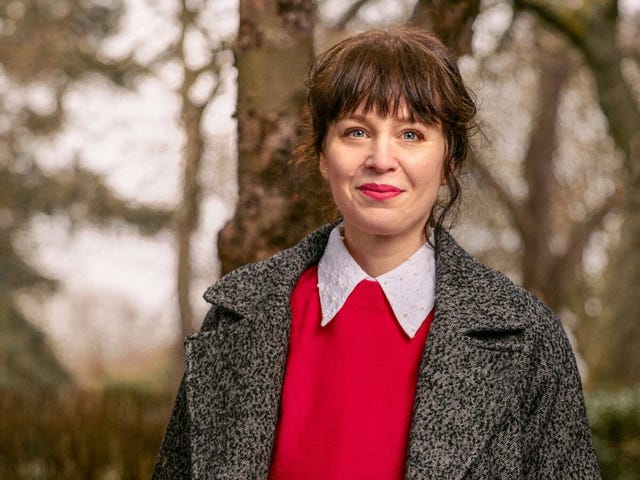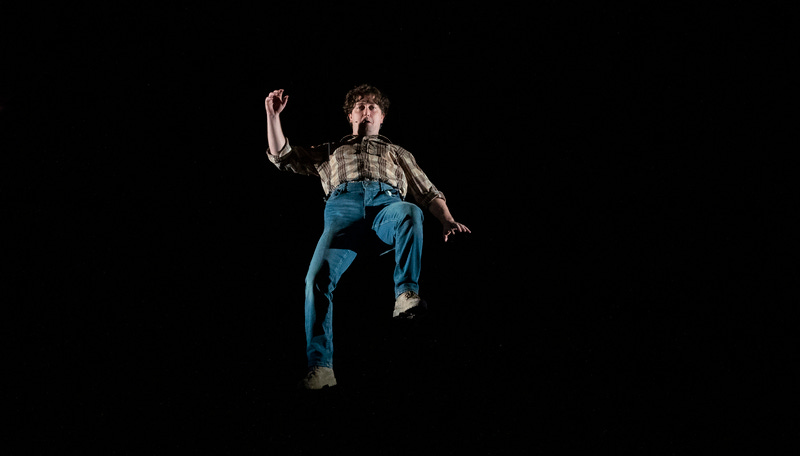The Boys From The Blackstuff is in our bloodstream
This week: Director Kate Wasserberg on taking an iconic TV drama to the Liverpool stage; an alternative Leeds in Slung Low's film The Magician; Lakeland Arts' focus on women and landscape
LIVERPOOL is almost unrecognisable from the city that played a starring role in Alan Bleasdale’s Boys From The Blackstuff, which first aired on BBC2 40 years ago.
Gone are most of the old bombsites, those empty spaces that were once as much a part of the city’s fabric as the green buses and the dockers’ placards. The Albert Dock was saved from dereliction long ago - its broken windowpanes replaced with new glass, contaminated silt dredged from its basin and its bridges repaired.
So too is mass unemployment, in the official figures at least. But the intervening four decades have brought new struggles - zero hours contracts, the need for food banks, juggling jobs as the basic cost of living soars.
It is the right time then for a return to the stories of Chrissie, Loggo, George, Dixie, Snowie, Yosser and the rest. Stories that have been given a new life - and a new platform - on stage at Liverpool's Royal Court.
Kevin Fearon, the theatre’s chief executive, had been keen to produce a stage version of the five-part TV series for many years. But it was director Kate Wasserberg who met up with Bleasdale in a Chinese restaurant and persuaded him to trust her with it. She brought in writer James Graham, whose much-plaudited BBC1 drama Sherwood portrayed the devastating aftermath of the miners’ strikes.
“The responsibility as a Stokie and James being from Nottingham weighs heavy on us,” says Wasserberg, who remained friends with Graham after they worked together during their 20s, including at the Finborough Theatre in London.
“Bringing him up to Liverpool to meet Alan was one of the greatest pleasures of my life because they’re just like soulmates. They finish each other’s sentences, and in the play you just can’t see the joins. Alan sometimes says “did I write that or did you?”.’
Wasserberg was only two when the series was first broadcast. She can’t remember whether she later watched it as a repeat screening or on VHS - that was wiped from her memory by the sheer impact the drama had on her, a girl whose maternal grandparents were Geordie shipbuilders who also read novels.
As well as being one of the things that made her want to tell stories, it gave lie, she explains, to the idea that the working class is without culture.
‘It’s one of those things that’s kind of in the bloodstream,’ continues Wasserberg. ‘It’s part of your way of understanding the world. It’s one of those iconic pieces of work - “gizza job” - that speaks to laughter in the face of desperation, demoralisation and masculinity.’

The titular ‘boys’ are unemployed men, who want to work, who take pride in their skills and in doing a job well, but are stuck in a double bind. The dole isn’t enough for them to get by on but the only jobs available are cash-in-hand - paid by wealthy property developers who are themselves dodging the rules.
Always on their heels are the ‘sniffers’, social security officers trying to prove they’re working while claiming unemployment benefit.
In the theatre production, Andrew Schofield plays George, Barry Sloane is Yosser, Mark Womack is Dixie, George Caple is Snowie, Aron Julius is Loggo and Nathan McMullen is Chrissie. Helen Carter returns to the Royal Court stage as Miss Sutcliffe and various other roles, while Angie is played by Lauren O’Neil.
While the characters themselves - funny, eloquent and despairing - are timeless, their experiences should seem like period-pieces in 21st century Britain. Yet, the desperation they feel continues to ring true today.
‘Investing in ourselves and in our country and in our people is not an evil that leads to poverty’
Wasserberg says: ‘It struck me how, although the mechanics of poverty have changed - then they had record unemployment, now there’s low unemployment but people are on zero hours contracts - actually we’ve legalised the very thing they’re being penalised for doing, which is essentially legalised cash in hand.
‘Living conditions for people are as bad as they’ve ever been. As bleak as that is there’s something empowering in going, “This is your story, these are your people, this was done to you and you are resilient and amazing. But also it’s okay to be angry and not to accept this again”.
‘It’s important to say to young people we did this before and it didn’t work. We divested cities of money before. We bought all that crap about tightening our belts before and it only ever leads to misery. I think it’s important for young people to know there’s another way and that investing in ourselves and in our country and in our people is not an evil that leads to poverty. It’s the other way around.’
In the minds of the most people, the characters are inseparable from the actors who played them. Bernard Hughes is Yosser Hughes, Michael Angelis is Chrissie. But Wasserberg says that the ghost of the 1982 TV series has not been haunting rehearsals.
‘It’s its own living thing. James is passionate about the original and wanted to keep the spirit but we were also aware that real time drama functions in a very different way,’ she says. ‘He’s been really fearless, with the help of Alan saying “this is yours now”.
‘The actors have come to it really ready to build their own thing and the writing is so strong on the page that everything else has to fall away. I direct the play that’s in front of me.. You can’t build a performance on something that’s outside of yourself.
‘The team here is so amazing - the passion in this building for this project and the determination to make it extraordinary.’
Boys From The Blackstuff is at Liverpool’s Royal Court until October 28. Tickets are priced from £16 here. There are no booking fees on this show.
We’re Also Buzzing About…
The Magician: Guest actors and members of the local community star in this film created by Holbeck-based theatre company Slung Low and writer-director James Phillips for Leeds 2023 (see trailer above). As riots threaten to overturn an authoritarian government, a young man sets off on an odyssey through the Yorkshire countryside to find the one person who can heal the nation. It premiered in Leeds in March but you can watch it online from Wednesday, September 27 here.
Women, Land, Art: A series of talks celebrating artists and their unique relationships with the landscape will be held by Lakeland Arts this autumn. Topics include the environmental crisis, natural forces within extreme landscapes and the diversity of mineralogy around the world. Find out more here.
Thank you for reading Stored Honey. I’ll be spending the weekend at Chester Contemporary, a new visual arts event curated by Ryan Gander who has even designed a tattoo for the occasion. There’ll be a full (uninked) report from me next week.
In the meantime, you can get in touch on Twitter, in the comments or by dropping me a line at tostoredhoney@gmail.com.
Have a great week,
Laura






I look forward each week to the next edition of Stored Honey.
I can't wait to see this version of Boys From The Blackstuff without Stored Honey I wouldn't have known it was on.